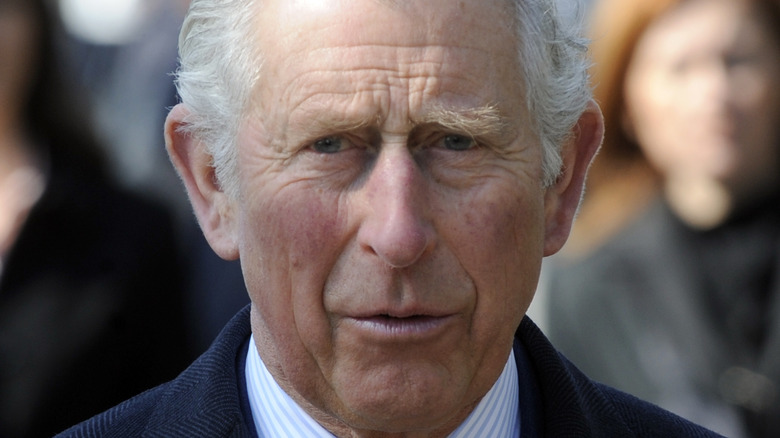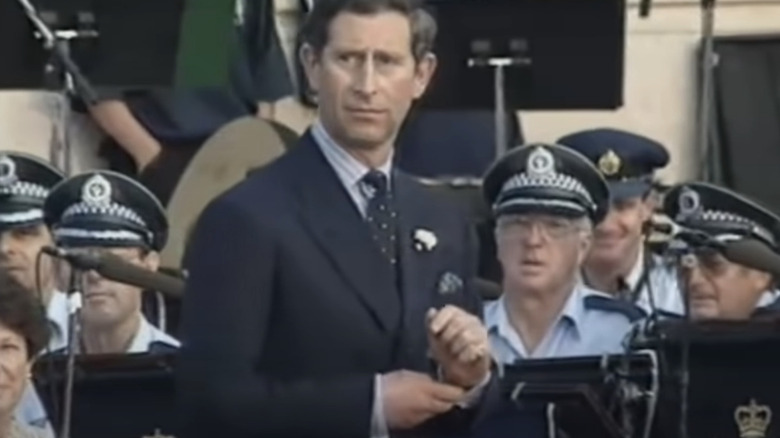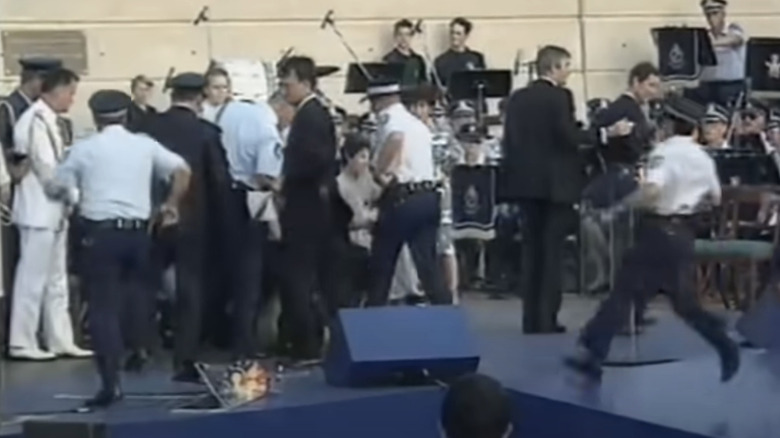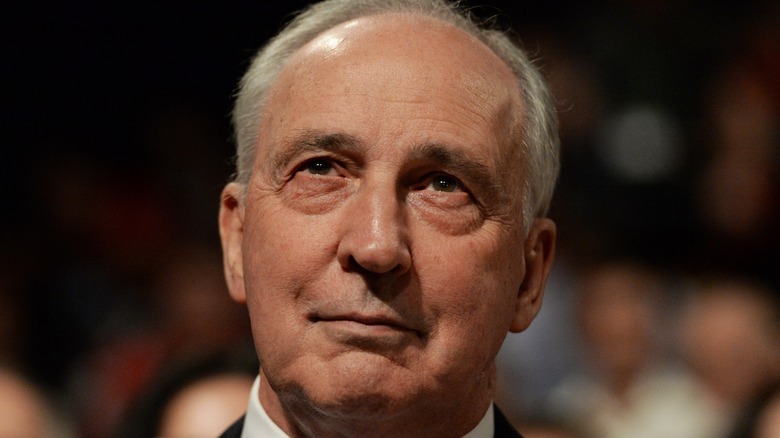The Truth About The Assassination Attempt On King Charles' Life
Eyes from around the world turned toward the British monarchy with the death Queen Elizabeth II at the age of 96. The longest-serving sovereign in British history reigned over both good and bad times for her country and for the commonwealth, as The Guardian notes. Since her death, thousands have queued up in London to honor the queen as she lay in state at Westminster Hall in London. Despite that strong public turn-out, general public support for the monarchy has waned, especially among younger generations, based on PBS News Hour reporting. That's nothing new — British royalty has long been a divisive topic, both at home and abroad, as USA Today explains.
Over the years, that pushback on the institution of royalty has been both peaceful and violent. There were three failed assassination attempts on the queen in her seven decades on the throne, according to The Mirror. Elizabeth's eldest son, King Charles III — whose coronation is expected sometime in 2023, according to CBS News — was attacked in Australia when he was the Prince of Wales. His assailant fired two blanks from a starting pistol. Though Charles escaped uninjured, the incident reveals the complicated relationship many have with the British monarchy in the U.K. and around the world.
Two blanks were fired at Prince Charles in 1994
The attack on Prince Charles happened January 26 — Australia Day — in Sydney while the British royal was on tour in 1994. He was a guest of honor, about to hand out Australia Day Awards, among the most prestigious awards to receive in that country (via Australia Day). At that time, though, there was an ongoing refugee crisis in Cambodia, and more than 100 so-called Cambodian boat people — refugees seeking asylum in Australia — were stranded in makeshift boats off the coast while the Australian government decided how to handle them, according to reporting by the Mirror. Other asylum-seekers were detained in prison.
On the day that King Charles III was fired at, he had just stepped to the lectern to speak. At that point, a young Cambodian university student named David Kang, who was 23 at that time, emerged from the crowd some 20 feet from where the prince was standing, based on Express reporting. Kang fired two blanks from a starter pistol. Notably, Charles kept his cool as Kang approached the stage, only pausing to adjust his cufflinks. Soon, Kang taken down by security, including Prince Charles' own bodyguards. Kang was later found guilty of threatening unlawful violence and sentenced to 500 hours of community service.
The shots were fired to protest the plight of refugees
Though it's unlikely that anyone could be killed by a starter pistol, guns of that type can be modified to shoot live ammunition and it's sometimes also possible to be injured by blanks, according to Forensic Science International (posted at the National Library of Medicine). Kang later said he was motivated to attack Prince Charles over concerns about the Cambodian refugee crisis and that he was also living with depression at that time, as The Mirror goes on to note. Kang expected the security team might shoot and kill him during the attack on the prince. Kang's advocacy for the Cambodians took the form of hundreds of letters written to high-ranking public officials, including Prince Charles. In one, he expressed his willingness to die for the cause.
Though he escaped uninjured, controversy ensued after Prince Charles was attacked, and blame was passed back and forth between Buckingham Palace, Scotland Yard, and the New South Wales police in Australia for the lapse in security, according to The Guardian. Some called for Prince Charles to cut short his tour. The Australian Prime Minister at that time, Paul Keating, expressed his embarrassment over what happened, and said that he doubted Kang really intended to kill the prince. He characterized what happened instead as a political demonstration.
Kang is now a barrister
At the time that Charles was attacked in Sydney, then-Australian Prime Minister Keating (pictured) also said (per The Mirror), "Prince Charles is a good friend of this country and he should be treated with the respect and dignity that a good friend deserves ... His control in the circumstances, I think, reflected the professional attitude that he has" (via The Mirror). By 2005, Kang had turned his life around to become a barrister, a type of lawyer, working in Sydney.
"What happened 11 years ago was an extremely traumatic experience and I have certainly moved on in my life and now I have become a barrister here in Sydney ... To think about it even now unsettles me a little bit ... what happened back then was extremely traumatic and the effect it had on my family was deeply upsetting," Kang said at that time (via The Mirror). Proving in this royal story at least, there really was a happy ending.



